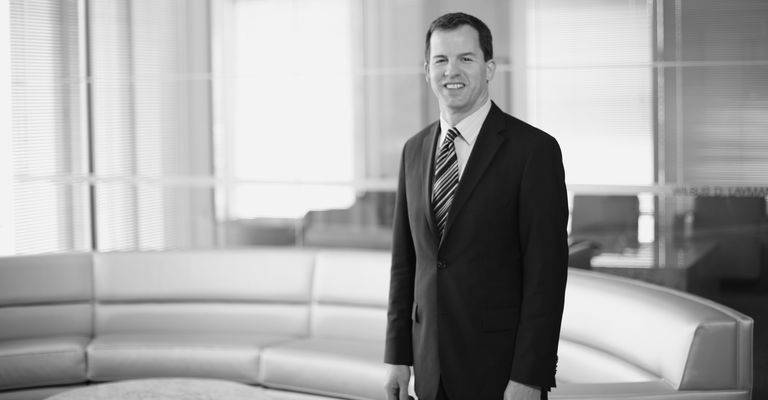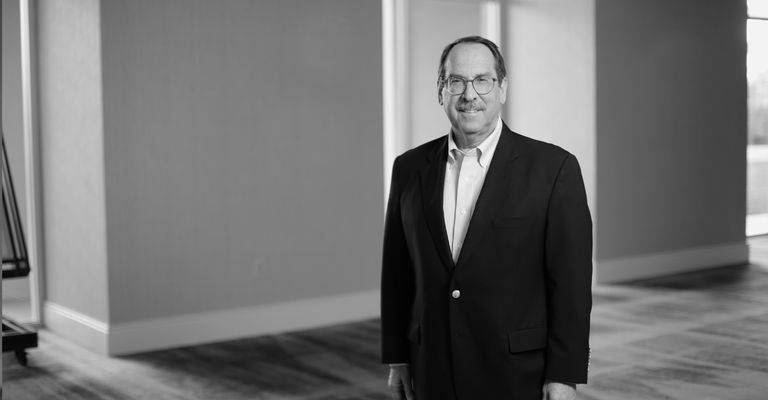Insights
Understanding the Litigation Privilege
Protecting Communications by Lawyers and Clients from Defamation and Other Tort Claims
Apr 24, 2025The litigation privilege insulates communications made by lawyers and their clients during, and in some circumstances, prior to judicial or quasi-judicial proceedings from defamation and other tort claims. Policy considerations for the litigation privilege include avoiding the chilling effect of subsequent litigation, limiting collateral attacks upon judgments, and encouraging settlement.
Most courts apply the formulation in the Restatement (Second) of Torts:
An attorney at law is absolutely privileged to publish defamatory matter concerning another in communication preliminary to a proposed judicial proceeding, or in the institution of, or during the course and as a part of, a judicial proceeding in which he participates as counsel, if it has some relation to the proceeding.
Historically asserted against defamation claims, the litigation privilege also extends to causes of action such as negligence, infliction of emotional distress, conspiracy, business torts, and fraud. The application of the privilege is a question of law and is evaluated on a case-by-case basis.
The litigation privilege applies to communications during a judicial proceeding or prior to proceedings if litigation is contemplated in good faith.
The litigation privilege protects statements during judicial proceedings, including allegations in a complaint and statements in court. While originally applicable to what would be considered “traditional litigation,” courts have extended the reach of the privilege to judicial and quasi-judicial proceedings, including administrative proceedings. See, e.g., Frisk v. Merrihew, 42 Cal. App. 3d 319, 322 (1974) (school board); White v. United Mills Co., 240 Mo. App. 443, 451 (1948) (state labor commission); Lambdin Funeral Serv., Inc. v. Griffith, 559 S.W.2d 791, 792 (Tenn. 1978) (state funeral board); W. Mass. Blasting Corp. v. Metro. Prop. and Cas. Ins. Co., 783 A.2d 398, 403 (R.I. 2001) (arbitration).
The litigation privilege also applies to prelitigation communications when litigation is contemplated in good faith and under serious consideration. Sriberg v. Raymond, 370 Mass. 105, 109 (1976); Kirschstein v. Haynes, 788 P.2d 941, 952 (requiring "actual subjective good faith belief that litigation is seriously contemplated" for the litigation privilege to apply). Whether future proceedings are contemplated in good faith or under serious consideration is a question of fact. Action Apartment Assn., Inc. v. City of Santa Monica, 41 Cal. 4th 1232, 1251 (2007).
In Blanchard v. DIRECTV, Inc., 123 Cal. App. 4th 903, 909-10 (2004), the defendant sent demand letters to thousands of people who had purchased devices that could pirate defendant’s television programming, and ultimately sued many, but not all, of them. Filing numerous lawsuits supported an inference that the demand letters were sent in good faith. See also Aronson v. Kinsella, 58 Cal. App. 4th 254, 271-72 (1997) (not filing suit did not undermine a finding of good faith when recipients of the demand letters had largely complied with the demand).
The litigation privilege is an absolute defense to defamation and other torts.
While the litigation privilege originated to protect lawyers from suits for defamation, immunity has been extended to bar other claims as well. See, e.g., Bergstein v. Stroock & Stroock & Lavan LLP, 236 Cal. App. 4th 793, 815-16 (2015) (aiding and abetting); Timothy W. v. Julie W., 85 Cal. App. 5th 648, 664-65 (2022), as modified (Nov. 22, 2022) (breach of contract); Simms v. Seaman, 308 Conn. 523, 569 (2013) (intentional infliction of emotional distress); Dorfman v. Smith, 342 Conn. 582, 612 (2022) (breach of the implied covenant of good faith and fair dealing); Hoover v. Van Stone, 540 F. Supp. 1118, 1121-23 (D. Del. 1982) (tortious interference with contractual relations); Teltschik v. Williams & Jensen, PLLC, 748 F.3d 1285, 1287–88 (D.C. Cir. 2014) (negligence); McGrew v. Heinold Commodities, Inc., 147 Ill. App. 3d 104, 114 (1st Dist. 1986) (invasion of privacy).
Courts disagree whether the litigation privilege bars a claim of fraud. Fraud barred: Madura v. Bank of Am., Inc., 767 F. App’x 868, 872–73 (11th Cir. 2019) (Florida’s litigation privilege applied to conduct during judicial proceeding); Heterich v. Peltner, 20 Cal. App. 5th 1132, 1141-43 (2018), as modified on denial of reh’g (Mar. 28, 2018) (extending privilege to fraudulent statements made in furtherance of litigation); Simms, supra, at 892 (privilege shielded lawyers against fraud claims); Bassichis v. Flores, 490 Mass. 143, 154-55 (2022) (privilege applied to lawyer’s fraudulent misrepresentations to the court). Fraud not barred: Matsuura v. E.I. du Pont de Nemours & Co., 102 Haw. 149, 162 (2003) (“Under Hawai‘i law, a party is not immune from liability for civil damages based upon that party’s fraud engaged in during prior litigation proceedings”); N.Y. Cooling Towers, Inc. v. Goidel, 10 Misc. 3d 219, 222 (Sup. Ct. 2005) (litigation privilege did not apply to plaintiff’s fraud claims); Moss v. Parr Waddoups Brown Gee & Loveless, 2012 UT 42, ¶ 37, 285 P.3d 1157, 1166 (litigation privilege did not shield lawyer against civil liability for fraud); Smith v. Chestnut Ridge Storage, LLC, 244 W. Va. 541, 550 (2021) (recognizing fraud exception to the litigation privilege).
The litigation privilege does not bar claims for malicious prosecution, abuse of process or malpractice. It also is not a defense to professional discipline against the lawyer.
Most states hold that the litigation privilege does not bar claims for malicious prosecution and abuse of process. Moss, supra; Mozzochi v. Beck, 204 Conn. 490, 497 (1987); Mason v. Mason, 19 Wash. App. 2d 803, 837 (2021); Paige Capital Management, LLC v. Lerner Master Fund, LLC, 22 A.3d 710, 724 (Del. Ch. 2011). Likewise, most states hold that the litigation privilege does not bar claims for malpractice. Kolar v. Donahue, McIntosh & Hammerton, 145 Cal. App. 4th 1532, 1540-41 (2006); Buchanan v. Leonard, 428 N.J. Super. 277, 287-88 (App. Div. 2012); Greenberg Traurig v. Frias Holding Co., 130 Nev. 627, 631-32 (2014). Nor does the litigation privilege protect attorneys from professional discipline by courts or state bar associations. See, e.g., In re Giannini, 212 N.J. 479, 483 (2012); Wright v. Yurko, 446 So. 2d 1162, 1164 (Fla. Dist. Ct. App. 1984).
The litigation privilege applies to communications, but not conduct. The speaker’s motive or purpose is not relevant.
Generally, the litigation privilege applies only to communications, not conduct. In California, the privilege applies if injury resulted from an act that was communicative in its essential nature. Rusheen v. Cohen, 37 Cal. 4th 1048, 1058 (2006). California courts have held the litigation privilege does not apply to the following conduct: unlawful recording of confidential telephonic communications (Kimmel v. Goland, 51 Cal. 3d 202, 212 (1990)), eavesdropping on a telephone conversation (Ribas v. Clark, 38 Cal. 3d 355, 364-65 (1985)), and a physician’s examination of a patient (Mero v. Sadoff, 31 Cal. App. 4th 1466, 1479-80 (1995)). However, the litigation privilege did apply to the following: prelitigation solicitations of potential clients (Rubin v. Green, 4 Cal. 4th 1187, 1195-96 (1993)) and testimonial use of the contents of illegally overheard conversations. (Ribas v. Clark, supra.)
Some states have extended the litigation privilege to apply to conduct (Taylor v. McNichols, 149 Idaho 826, 839 (2010)); (Kahala Royal Corp. v. Goodsill Anderson Quinn & Stifel, 113 Haw. 251, 266-69, (2007)); (O'Callaghan v. Satherlie, 2015 IL App (1st) 142152, ¶¶ 27-31, 36 N.E.3d 999, 1009-10)); (Clark v. Druckman, 218 W. Va. 427, 434, (2005)); (Moss, supra, at 2012 UT 42, ¶¶ 34-35, 285 P.3d 1157, 1166). One Texas court broadly held the litigation privilege applied to “actions taken in connection with representing a client in litigation” because they fell into a lawyer’s “duty to zealously represent his clients within the bounds of the law.” Alpert v. Crain, Caton & James, P.C., 178 S.W.3d 398, 405 (Tex. App. 2005).
The privilege applies notwithstanding malice, bad faith, or nefarious motives on the part of the lawyer so long as the communications have a relation to the litigation. Fink v. Oshins, 188 Nev. 428, 433 (2002) (privilege applies even when defamatory statements are made with “knowledge of their falsity and personal ill will toward the plaintiff”); Green Acres Tr. v. London, 141 Ariz. 609, 613 (1984) (“[The] speaker’s motive, purpose, or reasonableness in uttering a false statement do not affect the defense”).
The litigation privilege applies to communications to third parties if they have a relationship to the case.
Generally, courts apply the litigation privilege to communications made to third parties if they have a relationship to the case. Murphy v. LivingSocial, Inc., 931 F. Supp. 2d 21, 27 (D.D.C. 2013) (litigation privilege applied to defendant’s letter to plaintiff’s new employer because it “b[ore] a clear relationship to the dispute [by] defin[ing] the nature of the dispute”); Barnett v. Mobile Cnty. Pers. Bd., 536 So. 2d 46, 52 (Ala. 1988) (letter to town council that contained defamatory statements about town clerk was absolutely privileged because it was “clearly relevant” to a “proposed [judicial] proceeding” filed a few weeks after publication and “contemplated in good faith and under serious consideration”); Hall v. Smith, 214 Ariz. 309, 315-16 (Ct. App. 2007) (litigation privilege applied to communications made to a non-party parent company that had a close and direct interest in the litigation); Krouse v. Bower, 2001 UT ¶ 16, 20 P.3d 895, 900-01 (litigation privilege applied to demand letters to individual condominium owners, as opposed to their counsel; though not “necessary to effectuate the purpose of pursuing settlement,” owners had “clear legal interest” in the letter’s subject matter).
The litigation privilege does not apply to communications to the press.
Contrary to many lawyers’ expectations, most courts hold that the litigation privilege does not protect communications made to the press. See, e.g., Green Acres Tr. v. London, supra, at 614; Paglia & Assocs. Constr., Inc. v. Hamilton, 98 Cal. App. 5th 318, 325 (2023); Rodriguez v. Panayiotou, 314 F.3d 979, 988-89 (9th Cir. 2002); Rothman v. Jackson, 49 Cal. App. 4th 1134, 1148 (1996); GetFugu, Inc. v. Patton Boggs LLP, 220 Cal. App. 4th 141, 153 (2013); Seidl v. Greentree Mortg. Co., 30 F. Supp. 2d 1292, 1313-14 (D. Colo. 1998); Barker v. Huang, 610 A.2d 1341, 1347 n.4 (Del. 1992); Davidson v. Cao, 211 F. Supp. 2d 264, 275 (D. Mass. 2002); Bedford v. Witte, 318 Mich. App. 60, 65-66 (2016); Topping v. Meyers, 270 N.C. App. 613, 624 (2020); Bochetto v. Gibson, 580 Pa. 245, 253 (2004); Landry's, Inc. v. Animal Legal Def. Fund, 631 S.W.3d 40, 50 (Tex. 2021); Pratt v. Nelson, 2007 UT 41, ¶¶ 33-35, 164 P.3d 366, 377.
The privilege does not apply even if communications are limited to describing the allegations in the complaint. Barker v. Huang, 610 A.2d 1341, 1347 n.4 (Del. 1992). Courts hold the privilege does not extend to “litigating in the press” because such communications poison jury pools and bring disrepute upon the judiciary and the bar. GetFugu, Inc. v. Patton Boggs LLP, supra, at 153.
Nevertheless, some courts have applied the litigation privilege to lawyers’ statements to the media. In a case involving President Bill Clinton, an Arkansas court held the litigation privilege applied because the lawyer’s statements to the press did nothing more than generally deny the plaintiff’s allegations and question her motives. Jones v. Clinton, 974 F. Supp. 712, 731 (E.D. Ark. 1997); see also Prokop v. Cannon, 7 Neb. App. 334, 342-43 (1998) (lawyer’s statement to the press after his client dismissed her lawsuit was privileged); Helena Chem. Co. v. Uribe, 2012-NMSC-021, 281 P.3d 237, 246-247 (privilege applied to statement by attorneys to news outlets because it simply repeated allegations in the complaint).
Some states also have extended the privilege in class actions where the lawyer makes statements to the press for the purpose of seeking potential plaintiffs. See, e.g., Killmer, Lane & Newman, LLP v. BKP, Inc., 2023 CO 47, ¶¶ 41-49; Helena Chem. Co., supra; Simpson Strong-Tie Co. v. Stewart, Estes & Donnell, 232 S.W.3d 18, 24 (Tenn. 2007).
Related Practice Areas
-
Business & Commercial Disputes
-
Litigation & Dispute Resolution





